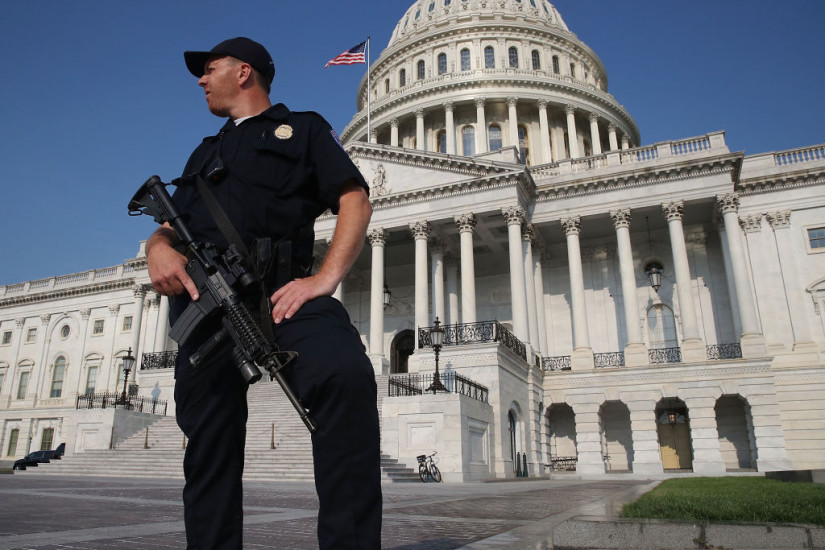During the 1840s and 1850s, Congress was ground zero for legislative violence because it was the epicenter of the nation’s fraught slavery debate. In those two decades alone, there were scores of violent incidents in the House and Senate, including shoving matches, fistfights, guns and knives drawn, canings and the occasional mass brawl.
The American public wasn’t far removed from such happenings. Then, as now, there was widespread interest in Congress’s work, and the press met the demand. This era marked the rise of a sensationalized, splashy style of journalism aimed at scoring points and selling papers, so congressional news was pumped full of passions, particularly in the all-powerful New York City papers — the period’s equivalent of today’s mainstream media.
Did this endanger congressmen? Some people wondered. During the struggle to forge a compromise over slavery in 1850, Rep. David Outlaw (Whig-N. C.) wasn’t sure he was safe even in the Capitol. “In times of great excitement, as upon the slavery question, armed men might be admitted into this Hall,” he worried. With hundreds of people milling about the Capitol, “in less than three minutes three hundred strangers” could rush into the House and bring “bloodshed and confusion” in their wake.
Outlaw had reason to worry: Congressmen had been attacked in the Capitol before. In 1844, former president and Rep. John Quincy Adams’s (Whig-Mass.) antislavery activism drove one man to accost him in the lobby. “You are wrong, you are wrong, and I will kick you,” said the attacker as he struck at Adams, who held his assailant off until he was arrested.
That same year, a Kentucky visitor got so excited by a brawl in the House — sparked by a Democrat who insulted Kentucky Whig Henry Clay — that he rushed into the melee and fired his pistol, hitting a Capitol policeman in the leg.
Arming members of Congress didn’t help matters. It was all too easy to get hot-tempered during a fractious debate and pull a weapon. In 1850, when Sen. Thomas Hart Benton (D-Mo.) lunged at Sen. Henry Foote (D-Miss.) for insulting him, Foote responded by pulling a pistol and pointing it at Benton. In this case, nothing happened; the gun was taken from Foote, and there the matter ended. But the potential for bloodshed was real. Foote later said that he had tried to position himself to hit as few people as possible if he fired.
